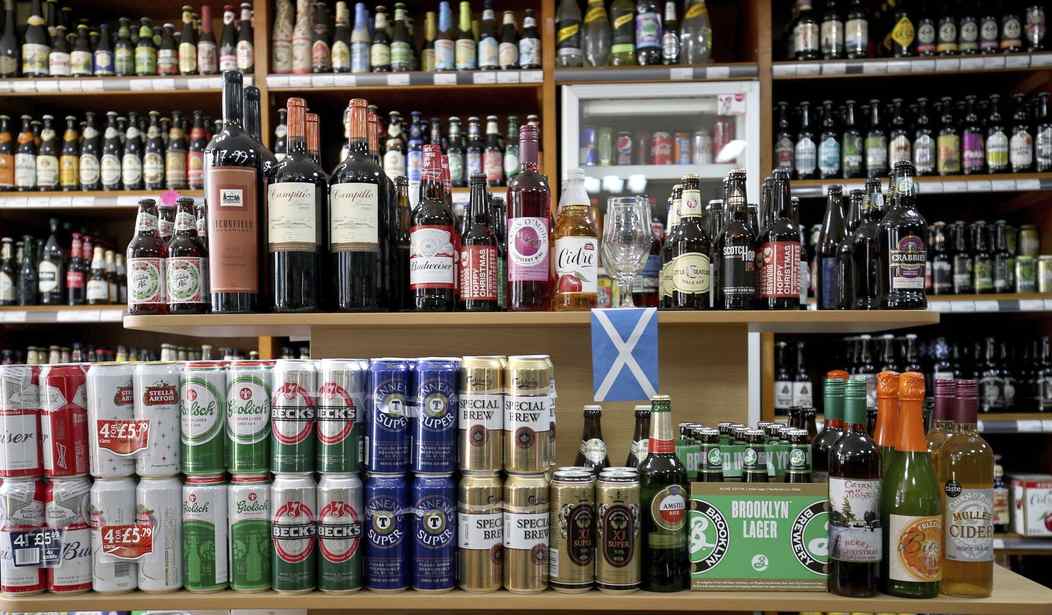The increase in violent crime across the country over the past couple of years has become a major talking point for gun control activists. In fact, just today a new report from the Johns Hopkins Center for Gun Violence Solutions (which recently announced its partnership with the “educational” wing of the gun control group Coalition to Stop Gun Violence reports a 15% increase in the number of gun-related deaths in the United States between 2019 and 2020. The new report calls for a host of new gun laws in response, including a “permit-to-purchase” law for all gun sales and the implementation of “red flag” gun seizure laws across the country. According to the authors of the study, the only way to get a handle on the growing number of violent crimes is to make it more difficult to legally exercise your right to keep and bear arms.
I can’t help but notice, however, that we’re not hearing more calls for alcohol control laws, even though both drug and alcohol-related deaths increased at an ever faster pace than gun-related deaths.
Based on figures from the previous eight years, deaths caused by alcohol use disorder, or alcoholism, nationally were 22% higher than projected last year, the data, published Wednesday by JAMA Network Open, showed.
They were 25% higher in 2020, when the COVID-19 pandemic began, the researchers said.
This is despite deaths caused by alcohol use disorder across the country rising steadily during the eight years before the pandemic, 2012 to 2019, they said.
In 2019, an estimated 52,500 people in the United States died from alcohol-related causes. For 2020 and 2021, or the pandemic years, that figure exceeded 70,000 each year, the researchers said.
That number is actually lower than what other studies have found. One study released last month documented more than 99,000 alcohol-related deaths in 2020, a figure that includes “alcohol-related causes ranging from alcohol-associated liver diseases to mental and behavioral disorders to drug overdoses involving alcohol.”
That’s about twice the number of all gun-related deaths, and yet, unless I’m missing something I haven’t seen a lot of calls for “commonsense alcohol safety laws”. There are no attempts to impose universal ID checks on all alcohol transfers; criminalizing giving a beer to your neighbor unless they show you proof that they’re over the age of 21, for example. There are no campaigns to mandate “safe storage of alcoholic beverages” so that minors can’t access their parents’ liquor cabinet, no attempts to ban alcoholic beverages that are attractive to younger drinkers like cotton candy-flavored vodka or “hard sodas”, even though researchers say that young adults have been a disproportionate percentage of alcohol-related deaths. No one is calling for a “permit-to-purchase” law requiring people get permission from their local police before they hit up a liquor store or “red flag” alcohol seizure laws that would allow police to confiscate booze from individuals if a judge decides that an individual’s drinking poses a threat to themselves or others. In fact, the authors of the new study on alcohol-related deaths simply say call for “increased provision of social and medical resource for individuals with alcohol use disorder.”
Yet when it comes to gun-related deaths, the primary focus of most academics and Democratic politicians isn’t to increase education and training around firearms, encouraging responsible gun use, or even focusing on the individuals committing violent crimes or those who need help with their mental health. Instead, they’re locked into a prohibitionist mindset that’s all about reducing the number of legal gun owners in the hopes of creating a safer society. If they truly think that’s the answer though, you’d think they’d be launching similar campaigns for “commonsense alcohol safety laws.” The fact that we’re not seeing anything like that tells me that the “public health” approach to gun violence is more about rebranding the gun control movement than anything else. A supposedly new approach that relies on the same old restrictions on the right to keep and bear arms won’t make us any safer, but it may very well make us less secure and far less free.









Join the conversation as a VIP Member